Search Results
Showing results 21 to 35 of 35
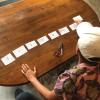
Find My Card
Source Institutions
In this activity, learners find the answer to the question, "if you have a pile of 8 cards, and you remove half, then half again, how many times can you do this until you get to just one card?" This w

Exploring Size: Memory Game
Source Institutions
In this activity, learners play a card game that explores different size scales--macro, micro and nano.
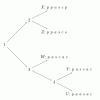
Phylogenetics
Source Institutions
This activity lets learners participate in the process of reconstructing a phylogenetic tree and introduces them to several core bioinformatics concepts, particularly in relation to evolution.

Exploring Fabrication: Self-Assembly
Source Institutions
In this activity, learners participate in several full-body interactive games to model the process of self-assembly in nature and nanotechnology.
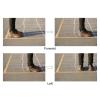
Kidbots
Source Institutions
In this activity, one person acts as a human robot while another acts as their developer by programming their actions.

Great Steamboat Race
Source Institutions
In this outdoor activity, learners race small boats, made of cork, balsa wood, popsicle sticks etc., to investigate the rate and direction of currents in a stream or creek.

Mating Game
Source Institutions
In this game (on pages 14-21), learners explore how each human being inherits genetic traits such as eye color.

Artificial Intelligence: The Intelligent Piece of Paper
Source Institutions
This activity explores what it means for a computer to be intelligent and introduces the topic of what a computer program is and how everything computers do simply involves following instructions writ
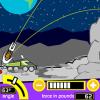
Planetary Rescue Squad
Source Institutions
This is an online Flash game where learners can experiment with ballistics and how to compensate for the varying levels of gravity found on the planets of our Solar System.

Guess the Sentence
Source Institutions
In this activity, learners play a game similar to Hangman by guessing a secret phrase to understand how computer scientists measure the amount of "information" in a document.
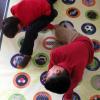
Exploring Size: StretchAbility
Source Institutions
In this game, learners explore the different sizes of things in the world. In this Twister-like game, learners must place a hand or foot on a circle of the right scale - macro, micro, or nano.
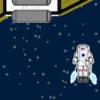
So Many Parts
Source Institutions
In this online Flash game and spacewalk mission simulation, learners are challenged to repair parts of a space station while balancing their oxygen and fuel use carefully.

I Spy Nano!
Source Institutions
In this game, learners try to find nano-related objects on a game board. Learners investigate the different ways nano is in the world around us.

Survivors! The People of the Arctic
Source Institutions
In this activity, learners use maps to locate the Arctic region and use a word game to discover the types of resource people need to survive in the extreme climate.

Self-Assembly Game
Source Institutions
This is a quick game about self-assembly (page 2 of PDF under Self-Assembly Activity). Like the molecules of DNA, learners will self-assemble into a pattern by following a simple set of rules.
